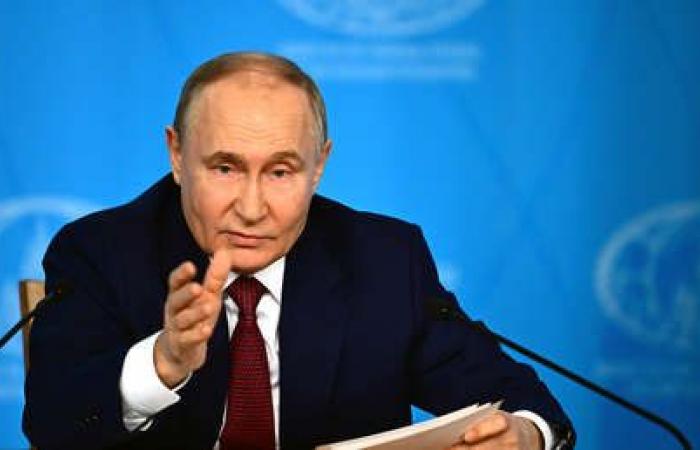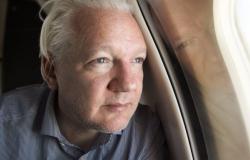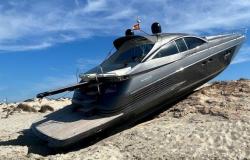Moscow, June 14 (Sputnik).- Russian President Vladimir Putin spoke this Friday at the country’s Foreign Ministry with one of his most impressive speeches since the start of the Ukrainian conflict.
Although the president has reiterated on multiple occasions that Moscow remains open to talks with kyiv, this time Putin put on the table a specific proposal for an immediate cessation of hostilities.
Four conditions
First, the Russian leader conditioned a ceasefire on the withdrawal of kyiv’s troops from Russia’s new territories – that is, the republics of Donetsk and Lugansk and the provinces of Kherson and Zaporozhye (Zaporizhzhia) – as well as to Kiev’s rejection of plans to join NATO.
«As soon as they declare in kyiv that they are ready for such a decision, begin a real withdrawal of troops from these regions, and also officially notify about the abandonment of plans to join NATO, we will immediately, at that very moment “We ordered a ceasefire and the start of negotiations,” Putin said.
The third point indicated is “a neutral, non-aligned and non-nuclear status of Ukraine”, something that was generally agreed upon already during the Istanbul negotiations in 2022.
The plan also implies that all Western sanctions against Russia be lifted, Putin said.
In general, the president made it clear that his peace proposal does not seek to freeze the conflict, like Western initiatives, but rather to provide a definitive solution.
«I believe that Russia offers an option that will allow us to truly end the war in Ukraine, that is, we call to turn the tragic page of history and, although it is difficult, gradually, step by step, begin to reestablish relations of trust. and good neighborliness between Russia and Ukraine and in Europe in general,” he said.
Origin of the conflict
For Putin, the Russian-Ukrainian crisis is not rooted in bilateral affairs, but rather “results directly from the global and European events of the late 20th and early 21st centuries and the aggressive actions of the West.”
As part of Russia’s “containment policy,” he continued, the West sought to also attract Ukraine into its orbit, trying to divide and sow discord between the two peoples.
After all, he used internal difficulties in Ukraine to orchestrate a coup in the country in 2014, according to Putin.
The West, he recalled, promotes the thesis that it was Russia that “started the war as part of the special military operation, which is an aggressor” while in reality “it was the Kiev regime, which, after the inhabitants of one part of Ukraine proclaimed their independence in accordance with international law, began war actions and continues them.
After the referendums in each of the four new Russian regions, he expressed, “we cannot speak of the violation of the integrity of our State.”
«The will of the people to be with Russia is unbreakable. The matter was closed forever and is no longer discussed,” argued the president.
Security Deterioration
Other topics that Putin covered are the security situation and the process of the formation of a multipolar world.
The Russian leader noted in his speech that “more and more States are striving to strengthen their sovereignty, self-sufficiency and national and cultural identity.”
In this sense, he highlighted the increasing weight of Latin America, Africa and the Global South in international affairs.
Although for now the Euro-Atlantic security system has completely collapsed, Moscow is interested in developing “an indivisible security system” open to all countries, Putin stressed.
In this context, he urged “to establish a principle in international affairs, according to which the security of some cannot be guaranteed at the expense of the security of others.”
Russian-European ties
In his speech, the president also pointed out that, despite all the Western rhetoric, a threat to Europe does not emanate from Russia, but from the United States.
“The main threat for Europeans is their critical and growing dependence, now almost total, on the United States in the military, political, technological, ideological and information spheres,” he warned.
In Putin’s view, Europe is increasingly being pushed “to the margins of global economic development”, depriving it of its independence and cultural identity.
“If Europe wants to remain one of the independent centers of world development and a cultural and civilizational pole of the planet, it certainly needs to maintain good relations with Russia,” the president predicted.
Regarding the US itself, he added that its attempts to “maintain its imperial status and dominance” are only exhausting the country, leading it towards degradation, and go against the genuine interests of the American people.
For Putin, if it were not for this aggressive action, international relations would have stabilized a long time ago.
New global pole
Reasoning about an imminent advance towards multipolarity, the Russian president asserted that this path reflects the aspirations of the absolute majority of the world’s population.
“We see this, among other things, in the growing interest in the work of such a universal association as the BRICS, based on a special culture of dialogue of trust, sovereign equality of participants and mutual respect,” Putin emphasized.
In this regard, he promised that Russia, which holds the presidency of the group this year, will facilitate a harmonious integration of the new members of the BRICS.
“In general, I believe that the potential of the BRICS will allow them to eventually become one of the central regulatory institutions of the multipolar world order,” predicted the Russian president. (Sputnik)






